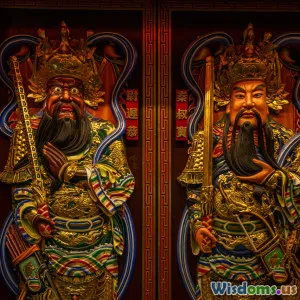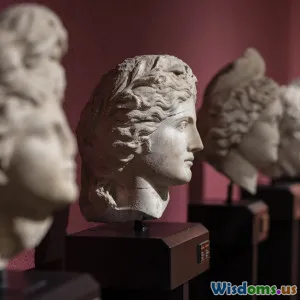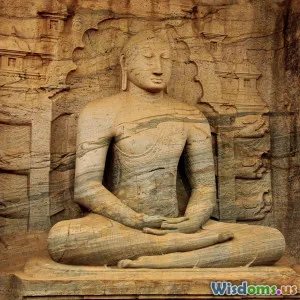
Exploring the Myths of Creation
5 min read Delve into the fascinating world of creation myths from various cultures and uncover the messages they convey about humanity. (0 Reviews)
Exploring the Myths of Creation
Creation myths are more than just stories; they are the foundational narratives that explain the origins of the universe, humanity, and the intricate relationships between them. These myths exist in every culture around the world, showcasing the diverse ways in which societies understand their existence and place in the cosmos. This article will explore various creation myths, their themes, and the deeper meanings behind them.
The Purpose of Creation Myths
At their core, creation myths serve several essential functions:
- Cultural Identity: They provide a sense of belonging and identity to a culture, offering shared beliefs and values.
- Explanation of Existence: These myths help explain the unknown, answering fundamental questions about life, death, and the universe.
- Moral Framework: Many creation stories convey moral lessons or guidelines for living harmoniously within the world.
- Connection to Nature: They often reflect the relationship between humans and the natural world, emphasizing stewardship and respect.
Examples of Creation Myths
1. The Cosmic Egg in Hinduism
In Hindu mythology, the universe is said to have originated from a cosmic egg known as Brahmanda. This egg contained the essence of the universe, and from it emerged the god Vishnu, who created the world. This myth emphasizes the cyclical nature of creation and destruction that is central to Hindu beliefs.
2. The Genesis Creation in Judeo-Christian Tradition
The Biblical account of creation in Genesis describes God creating the world in six days, culminating in the creation of humankind in His image. This narrative has significantly influenced Western thought and culture, instilling a sense of purpose and responsibility in humanity's role within creation.
3. The Enuma Elish of Babylon
The Enuma Elish is a Babylonian creation myth that depicts the god Marduk defeating the primordial goddess Tiamat to create the world. This story illustrates themes of chaos versus order and the establishment of divine authority in the universe.
4. The Maori Creation Story
In Maori mythology, the creation of the world begins with the separation of the earth (Papatuanuku) and sky (Ranginui) by their children, who longed for light. This myth reflects deep appreciation for nature and the interconnectedness of all living things.
Thematic Elements in Creation Myths
Despite the cultural differences, several common themes emerge in creation myths:
- Chaos and Order: Many myths begin with chaos, which is then transformed into order, symbolizing the journey from nothingness to creation.
- Divine Intervention: The presence of gods or supreme beings in the creation process highlights the belief in a higher power governing the universe.
- Humanity's Role: Most myths provide insight into humanity's purpose, often depicting humans as caretakers of the earth.
The Relevance of Creation Myths Today
As we navigate a rapidly changing world, creation myths continue to resonate. They remind us of our origins, our responsibilities to the planet, and the interconnectedness of all life. In contemporary discussions about environmentalism, social justice, and identity, these ancient narratives provide a rich source of wisdom and inspiration.
Conclusion
Creation myths are not merely relics of ancient times; they are living narratives that shape our understanding of the world and our place in it. By exploring these myths, we gain insights into diverse cultural perspectives and the timeless questions that unite humanity. Whether through the lens of science, spirituality, or philosophy, the exploration of creation myths invites us to reflect on our existence and the stories we tell about ourselves.
Rate the Post
User Reviews
Other posts in Creation Myths
Popular Posts


















